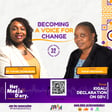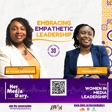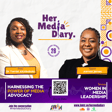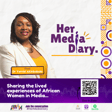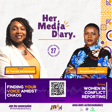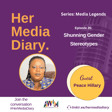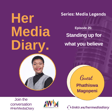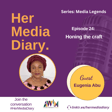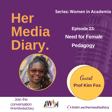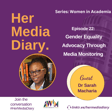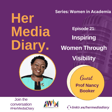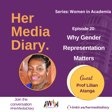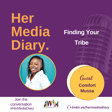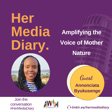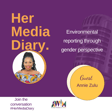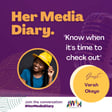
Her Media Diary Episode 16: “Nobody knows that story unless you tell it” With Marverine Cole
Marverine Cole is a multi-award-winning broadcaster and journalist with over 30 years of experience working as a reporter and news anchor for the UK’s leading media stations including the BBC
She has produced several radio documentaries, including Black Girls Don’t Cry which earned her ‘Journalist of the Year’ at the Mind Media Awards in 2019.
In this episode, Marverine shares her journey up the media ladder as a black woman in a white-dominated UK society where a person’s skin colour plays a vital role in what they can achieve.
She also shares how she has been able to deal with the rejections which took a toll on her for so long while maintaining an outward look that everything’s great.
Marverine’s story is that of resilience and of overcoming one’s limitations to undo stereotypes. It speaks to those who are experiencing different forms of discrimination as a result of their race, gender, ethnicity, and sexuality.
Subscribe to Her Media Diary now on your favourite podcasting platform https://linktr.ee/hermediadiary
Learn about African Women in Media https://africanwomeninmedia.com
List of organisations for support with your mental health
Africa Mental Health Research and Training Foundation
National Institute of Mental Health


